Tony,
I am not familiar with this situation, other than as the news account details. On the one hand I know from personal experience that not all communities’ residents are believable people. Often allegations are made which are exaggerated or false. But that said, that is not always true, nor even most of the time. Most resident complaints are usually true, although not always to the extent alleged. Often, they are angry and striking out, to feel better.
On the other hand, most true resident complaints are costly to fix and community ownership/management may be loath to take action.
They well know that most residents will not push too hard as they are aware of the results discussed herein the article: what do you do with your home if you are evicted? The options for the resident are not good and usually they tamp the rhetoric down and stop pestering the community ownership.
I do not know the truth to the allegations that the community had continuing problems with the Indiana manufactured home authorities. Surely as a state regulatory authority, one would think they should strictly enforce the state standards of safety and appearance set forth as important to that state.
And, diseased trees should certainly be attended to, and followed up for completion by the authorities, if diseased. In my life, in my communities, I dealt with many trees and cut them down as needed. Expensive, but destructive if they fall.
Incidentally, I did an expert witness assignment in Indiana and was less than impressed with the treatment of manufactured home community residents there. Take a state like NY, where compliance with state manufactured home standards is akin to strict liability, I found Indiana far from that standard, little seeming concern for manufactured home community residents.
As the large, multistate LLC [Land Lease Communities] companies have jumped to accumulate communities, they have come face two truths;
- Anytime you do not have to fix anything, the bottom line is protected.
- Many of these properties are purchased at scary multiples to income and it takes several strong rent increases to get to break even. Especially in working class LLCs, many of them constructed in the 1970s, utilities are likely to be marginal, or worse, and the fix is very expensive. Deferred maintenance is the order of the day, and if the state authorities are not on their case, little will be done by ownership to correct problems.
- Whether the LLC is purchased with money from a public offering, or lender loans or limited partners, they are all harsh task masters, looking for either timely loan payments or returns or both. They must be fed, and this leads to lots of the “gestapo” measures applied by some community owners. Not all, but there are plenty out there who fail to meet their obligations to their residents. Lacking support from rent control, tenant unity, or governmental regulations evenly applied, the ownership always knows “the resident has great difficult taking their home with them if evicted.” That, my friend, is a pretty effective cudgel.
- I think some of the newer, upscale LLCs are less bothered by these problems. Not that these issues do not exist there as well.
I came up with that recently when my in-laws owned a multi-section home in a very large senior South Florida LLC. Extremely nice property, still in the hands of the developer’s family. Well, I have done many title searches and know that every property changes hands eventually. So, this property’s turn came to sell. I have no first had knowledge of the transaction, but I know it was a BIG one.
Shortly after the transfer, a reasonable rent increase was announced and then a later date notice was given that a large rent increase would be announced. Now, don’t misunderstand me, as often happens, longtime family owners fall behind on the proper rent for expected returns. It endears them to the residents, keeps resident complaints to a minimum, but sets up the strong rent increases coming upon ownership transfer.
Result in this LLC, homes previously selling smartly for $100K+ suddenly were having trouble selling for half of that amount. This is one way in which LLC behavior erodes resident value.
Failure to deal with resident complaints leading to eviction is another, as the industry dealings are one of the few financial transactions given faint protection leading to a pure mercenary equation.
Yes, it costs money to be poor. ##
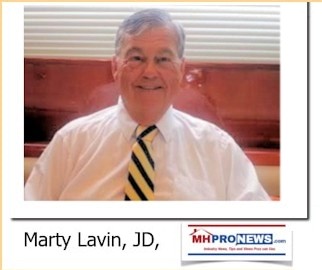 MARTIN V (Marty) LAVIN
MARTIN V (Marty) LAVIN
350 Main Street
Burlington, VT 05401
attorney, consultant, and expert witness
practice only in factory-built housing
mhlmvl@aol.com martylavin@aol.com
802-238-7777 cell 802-660-8888 office
WINTER ADDRESS
PO Box 223753 Hollywood, FL 33022
Editor’s Note: Lavin was asked to provide feedback on the topic found in the report linked here.



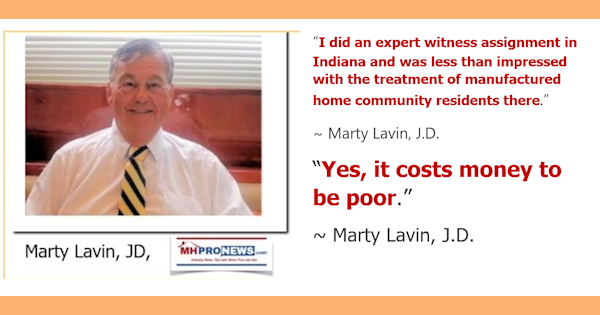

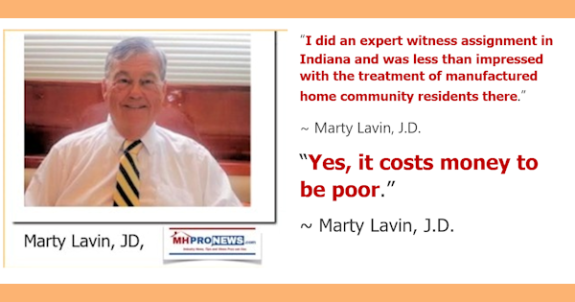
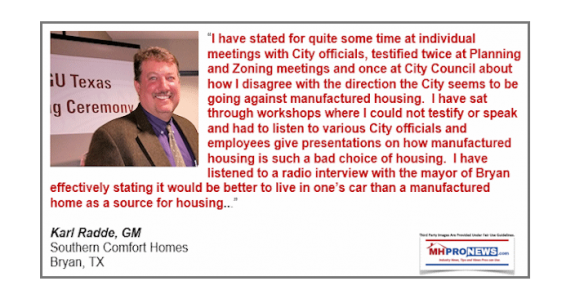
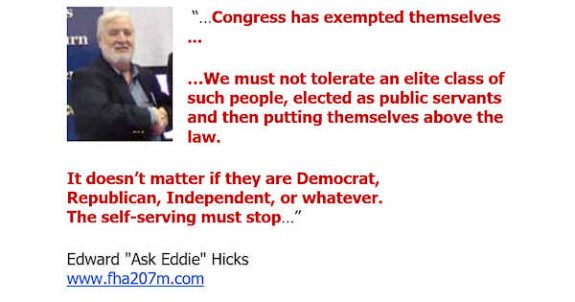
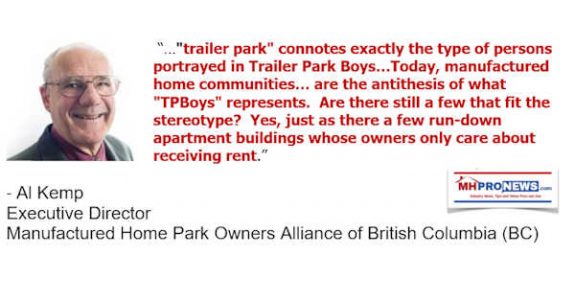

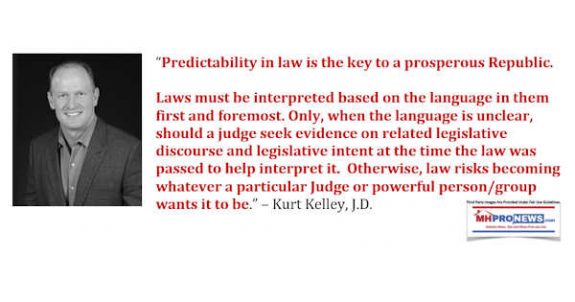

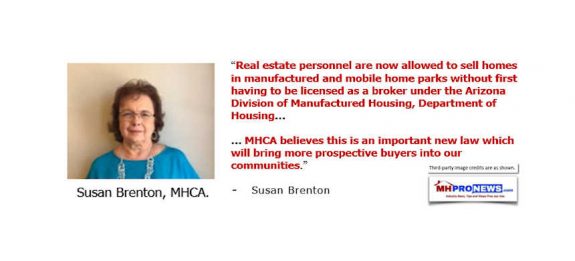
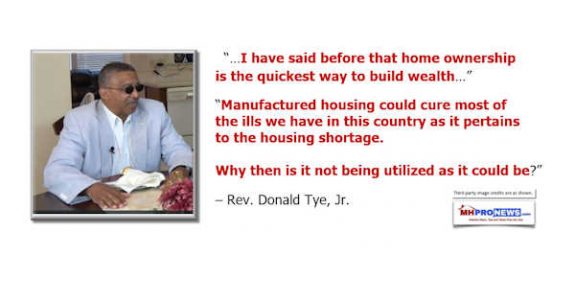
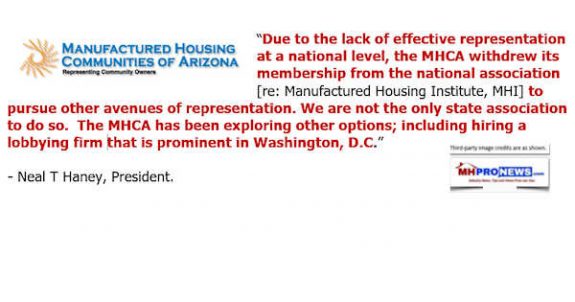

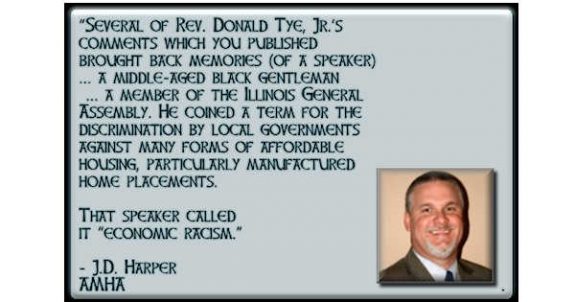
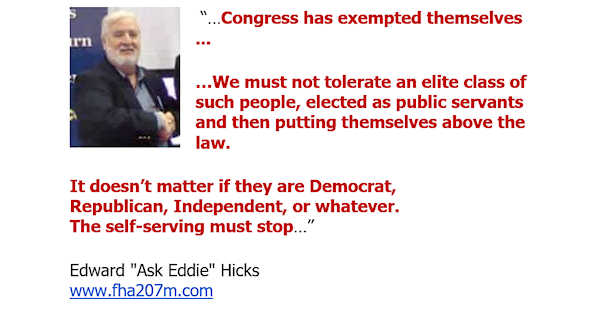
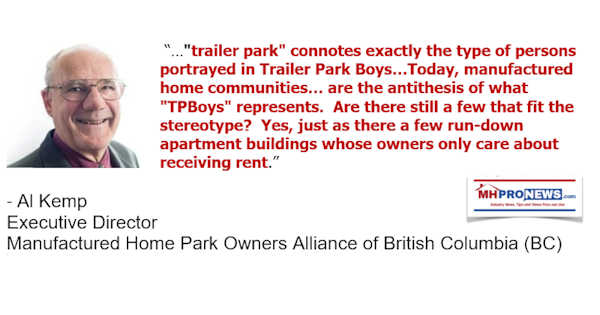
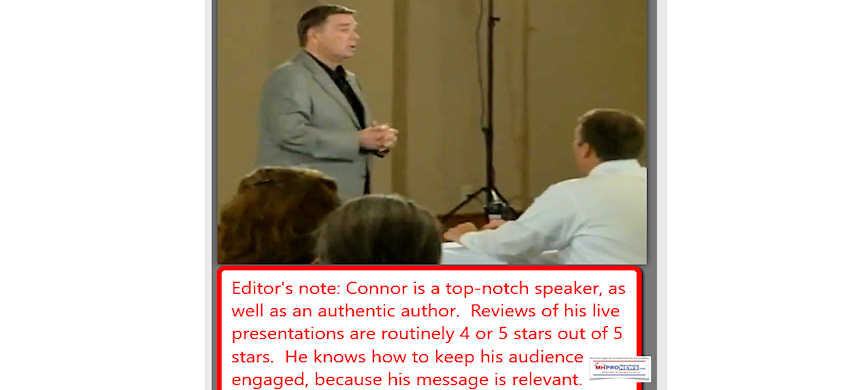
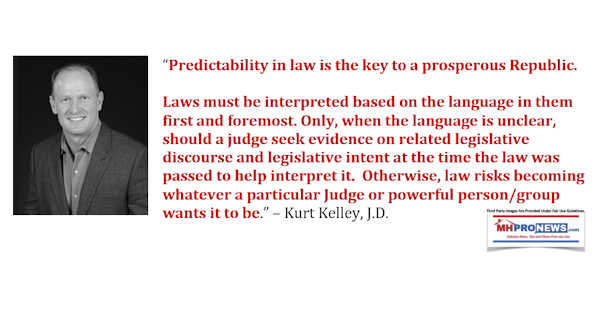

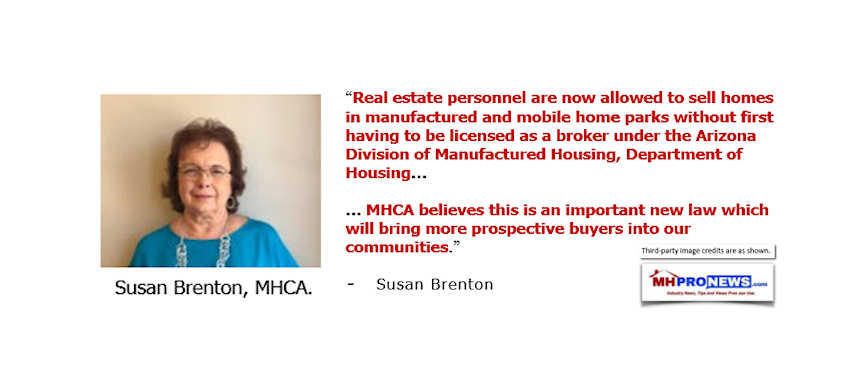
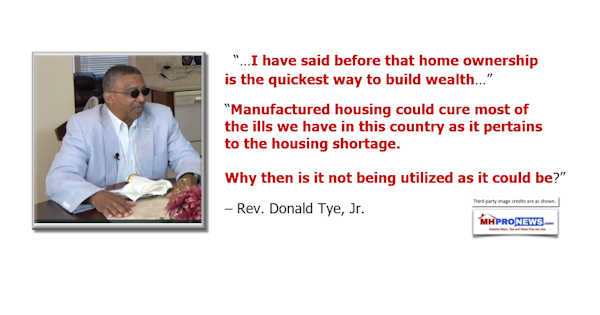
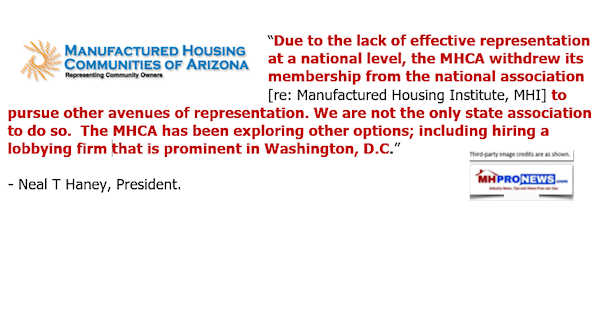

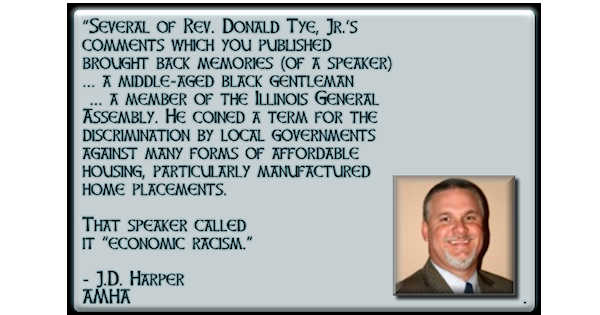
Karl Radde – TMHA, MHI, Southern Comfort Homes – Addressing Bryan City Leaders, Letter on Proposed Manufactured Home Ban
To All Concerned [Bryan City Officials, Others]: As the retail location referenced by Mr. Inderman, I would like to take a moment to address the …